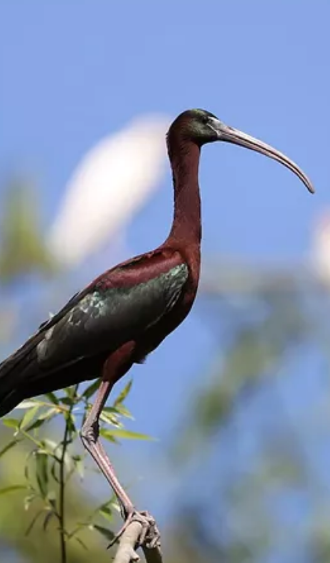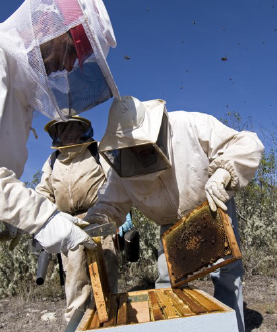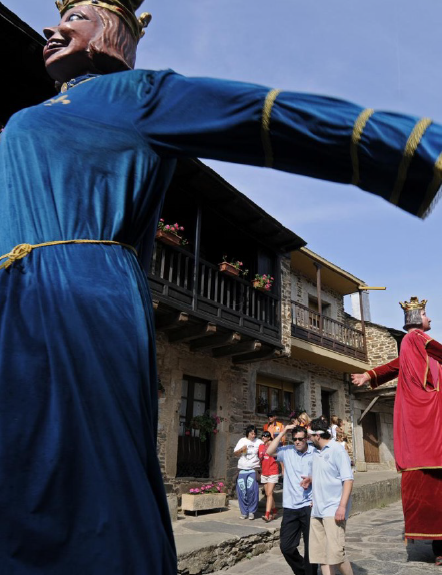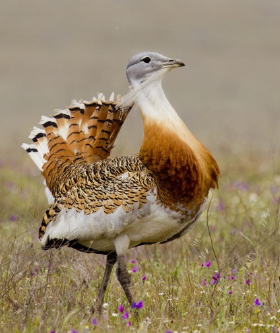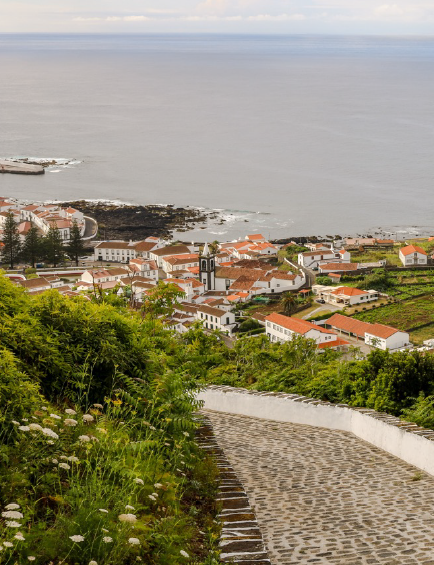Biosphere Reserves: Sustainable Territories, Resilient Communities
This is a collaborative project with Portuguese researchers and Biosphere Reserves. We aim to map, analyse, generate and test new knowledge and solutions for sustainable land-use at a local scale in line with the needs of the people of Biosphere Reserves in Portugal. We will use best-practice knowledge of the past, and fuse it with current needs and methods to build solutions for a better future. The 12 Portuguese Biosphere Reserves will be the focus of this project, while Nordhordland Biosphere Reserve will be the Norwegian comparative case study.
Main content
STARTING POINT
Identity, environmental quality and engagement of Biosphere Reserve (BR) communities.
VISION
Develop and promote a participatory strategy for the valuation of BRs through:
- Understanding the benefits and values of BRs
- Promoting ecosystem services
- Enhancing habilitation
- Dynamic communication
- Adopting an integrated and cooperative governance model
TRAINING AS A TOOL FOR HABILITATION
- Adapted to the interests of different actors, such as managers and advocates for local economy.
- Oriented towards local actors and their interests and expectations.
- Strategic promotion of local entrepreneurship and supporting integrated area development.
- Hands-on training with developing and monitoring pilot studies on local economy, business, and tourism promotion.
DIGITAL TOOLS FOR MANAGEMENT AND COMMUNICATION
- Joint presentation, valuation and promotion of BRs.
- Using digital means and channels for management, tourism, nature conservation, entrepreneurship, local economy, research, citizen science, history, heritage and identities.
- In line with the communication and promotion programme, the project will enhance habilitation and knowledge and aim to display the BRs' features as living-labs for sustainability.
EXPECTED OUTPUTS
- Valuation of BRs and their communities.
- Strengthening management and development capacities and skills.
- Increase promotion and visibility at national and international levels.
- Innovative and integrated habilitation for good life quality and community prosperity.
- Create and develop digital platforms for communication and interaction between BRs, communities, and the general public.
ACTIONS
- 11 Sustainable Development Plans
- 11 Pilot-actions
- Participatory planning methodologies
- Sustainable Development indicators system
- Monitoring plan
- Strategic communication and marketing plan
- Awareness plan and activities
- Guides, roadmaps and manuals
PARTNERSHIP AND TEAM
Highly qualified institutions and experts with in-depth experience in all relevant areas. Institutional partners include:
- University of Coimbra, Portugal
- New University of Lisbon - Faculty of Social and Human Sciences
- PC & A - Strategic Marketing Consultants, Lda
- Pedro Nunes Institute, Association for Innovation and Development in Science and Technology
- Order of Biologists
- KEEP - Knowledge for Peace, People and the Planet
- University of Bergen, Norway
- Nordhordland Utviklingsselskap IKS, Norway
- Icelandic National Commission for UNESCO
RESEARCH AFFILIATES:
Portugal:
Helena Freitas - Professor of Biodiversity and Ecology at the Department of Life Sciences of the University of Coimbra, and holds the UNESCO Chair in Biodiversity and Conservation for Sustainable Development.
Joana Alves - PostDoc, Centre for Functional Ecology at the University of Coimbra. Her work is on the topics Animal ecology & behaviour, Conservation and management of natural resources, and Landscape ecology.
Catarina Moura - Invited assistant researcher accociated with the University of Coimbra UNESCO Chair and Centre for Functional Ecology.
António Abreu - Biologist and Environmental Expert on biodiversity, nature conservation and environmental management, with a long experience of work with the MAB program in Portugal as well as internationally. Member of the Portuguese National Council for the environment and Sustainable Development and Vice-Chair of the European Network of environmental Advisory Councils.
Maria Fernanda Rollo - Secretary of State for Science, Technology and Higher Education of Portugal. PhD in Contemporary History by the Faculdade de Ciências Sociais e Humanidades, Universidade Nova de Lisboa and Associate Professor in the same faculty.
University of Bergen:
Inger E. Måren - Associate professor at the Department of Biological Sciences, and holds the UNESCO Chair on Sustainable Heritage and Environmental Management - Nature and Culture. Her research focuses on the dynamics in coupled human and natural systems, including sustainable development, natural resource management, agro-biodiversity, sustainable land use, ecosystem services, agroecology, and food security.
Alicia Barraclough - Postdoctoral researcher associated to the University of Bergen UNESCO Chair. Her work focuses on UNESCO Biosphere Reserves as social-ecological systems which are testing sites for sustainability and earth stewardship.
Jarrod Cusens - PhD Candidate associated to the University of Bergen UNESCO Chair. His work is transdisciplinary in the field of ecology, focusing on sustainable development and understanding the human position in the big ecological picture.



